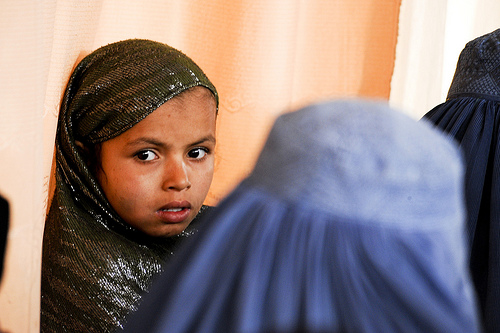

The distinguishing characteristic of mankind, according to the Qur’an, is the dignity bestowed upon it by God: “We have dignified the children of Adam … and favoured them over much of creation.” Human dignity is, therefore, a fundamental tenet of the Islamic worldview. It should be no surprise, then, that Islam’s emergence and presence in the world has been one which has placed a very high regard on the protection of human rights. This concern is heightened considerably when one turns to the most vulnerable members of society. Indeed, one of the first missions of the Prophet Muhammad was to express his outrage and denunciation at the pre-Islamic Arab customs surrounding young girls, customs which saw them as less than human and a source of embarrassment to the family.
These are long-standing and unshakeable principles which are representative of the enduring spirit of Islam. It is crucial, therefore, that we evaluate modern social phenomena in light of these long-standing values. A recent troubling trend on the rise in Egypt and elsewhere has been the number of marriages of girls under the age of minority, in contravention of recent Egyptian laws aimed at protecting children by stipulating that marriages of brides under the age of 18 are not to be solemnized. A number of cases have recently presented themselves of young girls being put on display, so that rich older men may choose from among them for purposes of marriage (often a temporary marriage), the parents of the girls being compensated financially as if this were simply an exchange of commodities. This is a dangerous and troubling phenomenon, betraying the meaning of the Islamic conception of marriage.
Marriage is a sacred institution in Islam, based on love, mercy, and mutual respect. The sorts of arrangements mentioned above fail to live up to these ideals, and worse, compromise the dignity and humanity of young girls, treating them as slaves or chattel to be bought and sold. And this all for the sake of a suspect marriage disguising mere licentiousness, and more often than not leaving the marital rights of the girl unfulfilled. This is not a marriage worthy of the name, but rather a clear case of sexual exploitation which must be condemned in the strongest possible terms.
One of the most basic principles of Islamic law is the Prophetic command to neither inflict nor accept harm. This imperative will be familiar to those from other faith traditions as the golden rule – a universal commandment that applies to all, irrespective of social class or gender, special care must be taken to ensure that no type of harm befalls those who can neither cause nor repel harm on their own, the weak and helpless in our societies. Such deplorable cases not only cause individual harm to the young girl, but inflict harm also on the societal level. Islam has always sought to work for the welfare of the vulnerable and marginalized. When one considers minors, it is noteworthy to point out that the Sharia has given them full legal capacity over their economic assets. And in cases where there has been a legal guardian appointed, he or she is duty-bound to dispose of the minor’s wealth only in ways that safeguard and advance the latter’s welfare. It is of course evident, therefore, that the minor’s welfare should be a primary concern in a matter as serious as marriage, for one’s honor is certainly more sacred than one’s wealth.
The jurists of Islam have long held that the values of love, mercy and mutual respect between the spouses can be best realized through considerations of compatibility between the two spouses. Many of them have deemed compatibility not simply a preference but rather a central value of the Sharia to be sought in all cases; indeed, a condition of the validity of an Islamic marriage.
The jurists have agreed that an extreme age difference is an important example of incompatibility. This is no small matter, for a father that fails to take such incompatibility into account is one who has lost his standing as a trustworthy and upstanding member of the community. And the jurists have stipulated that this standing is a requisite for his legal agency over his young daughter’s affairs. There is no doubt that a man who engages in such sexual exploitation, and puts his daughter in such a precarious and dangerous situation, can in no way be considered a legitimate representative looking after her well-being and interests. Rather, he has not even fulfilled the least of his responsibility towards his humanity. As such, he forfeits his right to represent his daughter.
Based on this reasoning, we must call for the criminalization of this sort of behaviour, and to punish those who partake in it – be they parents of the girl, or intermediaries. Further, we must work to establish the true meaning of an Islamic marriage in our society, and restore the dignity and humanity of all members of our community.



